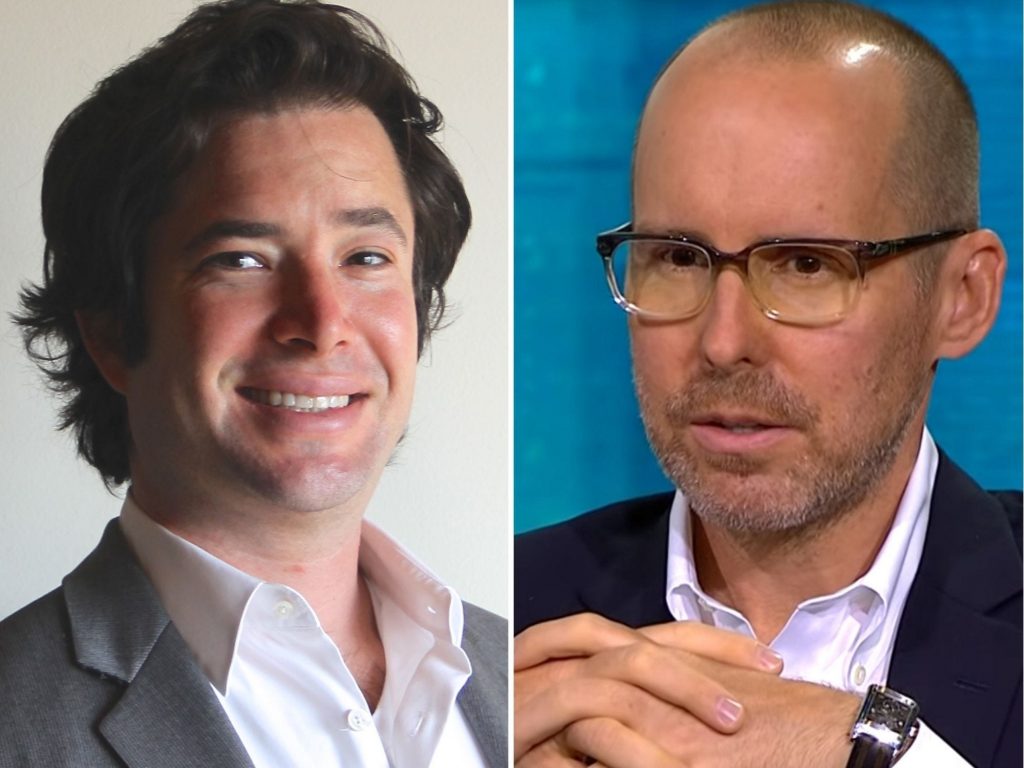- In 2020, Universa made headlines for a 4,144% return but says timing a crash isn’t their strategy.
- The firm believes since no one has a crystal ball, investors always need to be aware of their risks.
- And, that a tactical strategy based on trying to time a crash is risky and likely counterproductive.
Universa Investments, a hedge fund known as a “Black Swan” fund because it profits from market shocks, made headlines again for posting a 4,144% return in the first quarter of 2020. The S&P 500 saw its fastest crash ever during that same period.
The firm’s strategy of “tail-risk hedging,” or “Black Swan” investing, was developed by Mark Spitznagel, the company’s president and CIO, and its scientific advisor Nassim Nicholas Taleb.
But despite the slam dunk the company enjoyed early last year, Universa says it’s not actually in the downturn prediction business, but rather the downturn protection business.
Brandon Yarckin, the COO of Universa, says his firm doesn’t necessarily try to make money by timing a crash. Instead, they have a twofold strategy that allows them to do well regardless of market volatility.
“One, we try to have positions on that explode in value in crashes. Two, and equally important, in the years where there are no crashes, we’ve kept our costs down, particularly relative to other managers or forms of risk mitigation,” Yarckin told Insider.
Yarckin added that the positions Universa held in March 2020 were not actually tactical or timing-oriented - in fact, the firm had similar positions in the years leading up to the market crash.
"We don't have a crystal ball, nor do we think anyone really does. We think that people both need to be aware of the risks in their portfolios, and that they have big risks in their portfolios," Yarckin says. "And to manage those risks, they need to be strategic, not tactical."
The firm had earned big during previous market blowups; in August 2015, it netted a 20% of over $1 billion on a day when the Dow plunged by more than 1,000 points, The Wall Street Journal reported.
Yarckin told Insider the firm is more proud of the portfolio stability they've managed to achieve for their clients over the last decade. Based on documents previously viewed by Insider, Universa Investments enjoyed an annual return on capital of 105.2% from its Black Swan Protection Protocol Fund from 2008 through 2019.
"Any punter can devise a strategy that does well in a crash. It's how a risk mitigation strategy does over long periods of time that tells you how good it was," Spitznagel told Insider in an email.
Biggest risks going forward
Yarckin says that it's no secret we are in an unprecedented monetary environment. The amount of currency that's been created by central banks globally is unparalleled. Since March 2020, the value of assets on the Fed's balance sheet has nearly doubled to $7.9 trillion.
"We're not in the camp of saying that will directly lead to hyperinflation or even regular inflation. It just maybe raises the potential for that to be an outcome," Yarckin says.
He adds that the central banks are really giving investors no choice but to turn to riskier assets, since interest rate-yielding products have been compressed to zero.
Yarckin says if investors think that the central banks will not allow the market to crash because they're fully committed to an inflationary narrative and preventing equity markets from crashing, then the biggest risk is not owning enough equities.
"So you're kind of in this, if you don't take enough risk, you might miss out on inflation. If you take too much risk, you have the risk of real repricing valuations because assets are so expensive. Most investors are kind of stuck and that's the unfortunate outcome of monetary policy, you're forcing people to take risks that they probably shouldn't take," Yarckin told Insider.
Hedging against risk
While Universa specializes in hedging against risk, the firm doesn't have a one-size-fits-all approach. Instead, Yarckin believes that each investor's portfolio should reflect the risk narrative they are most concerned about.
In fact, Yarckin has limited advice for individual investors because getting it wrong could cost an investor more money. "There is a huge risk for an investor to have the wrong type [of protection], or no protection," he says.
"We look for things that cost small amounts of money most of the time, and yet can make a lot in crashes, like options. We would not advise people, including other fund managers, to try to do what we do," Yarckin continued.
One piece of advice Universa does have for investors is that they shouldn't try to time events.
"We just think that people need to recognize the valuation environment that they're in when they're owning assets and that even if they see inflation and they get their narrative right, you could see massive repricing in the thing you're using to hedge yourself against inflation," Yarckin says.
He adds that investors need to make sure they have a good understanding of what their maximum losses could be, and that their assumptions should not be based on a likely scenario, but rather an unlikely scenario. Additionally, investors should avoid risky hedging strategies, such as derivatives.


